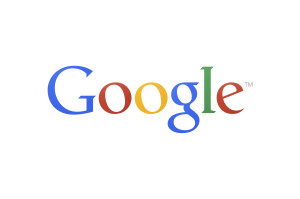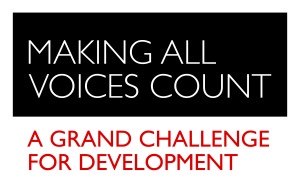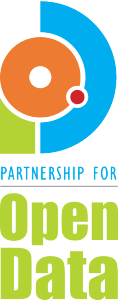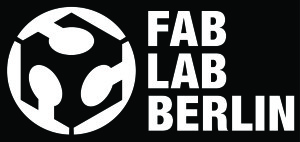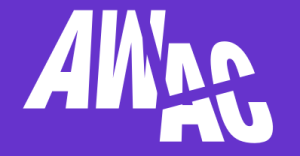At this year’s festival we were helped by a fantastic team of volunteers, some of whom contributed to sharing updates about the event on social media. As well as tweeting and taking photos and video, each day they compiled a Storify of some of the top tweets. Below is the Storify for Day 3 of the festival which included keynotes from Neelie Kroes and Eric Hysen as well as ice cream, a graffiti wall and the closing party!
Author: Lou Woodley
Open Knowledge Festival – Day 2 Storify
At this year’s festival we were helped by a fantastic team of volunteers, some of whom contributed to sharing updates about the event on social media. As well as tweeting and taking photos and video, each day they compiled a Storify of some of the top tweets. Below is the Storify for Day 2 of the festival.
Wikirate at this year’s OKFestival
Wikirate are one of the exhibitors at this year’s Open Knowledge Festival. This is a guest post by Lucia Lu of Wikirate.org, letting you know more of what they have planned for the event.
What is Wikirate.org?
Wikirate.org is a community-driven initiative to “open companies up” by providing a wiki platform for corporate sustainability – what companies are doing well and badly. The information is created by and for anyone who interacts with companies: consumers, employees, investors, management, regulators, competitors… in other words, it’s for all of us.
Collaboratively-edited content on Wikirate.org focuses on companies, sustainability topics, and where the two meet. Any given company page will feature several articles for topics and vice versa. Every article is supported by Claims, and the Claims themselves must cite external Sources.
What are Claims, exactly? And why not cite sources directly? The answer is that Claims are Wikirate’s building blocks; they break information down into bite-sized pieces that can be reviewed, discussed, challenged, defended, and honed. In an era suffused with advertising and advocacy, we all hear many strong claims made about Companies every day. Wikirate provides a mechanism for looking closely at this deluge of Claims and bringing greater attention to Claims that are valuable and credible.
#openfashion14
As a 100% user-powered platform, Wikirate depends on its community to become the go-to place for transparent and reliable information on corporate sustainability. To get there, the platform will be launching its first content-drive campaign #openfashion14 at the Open Knowledge Festival in Berlin.
Focusing the attention of current and new contributors on the fashion industry, the campaign's goal is to demonstrate that collectively, the crowd is even able to make sense of what’s happening behind-the-scenes of an entire industry, if it is provided with the right tool, a space, where they can interact with big data.
Wikirate.org intends to be that space; and by choosing the fashion industry, the campaign not only addresses products that literally touch us all, but it also has the potential to cover a broad spectrum of diverse sustainability topics, ranging from natural resource use to working conditions. Participate in the campaign and you will be surprised how a fashion company's way of managing animals rights can affect how sustainable they are, just as much as their behaviour regarding waste management!
Here’s how you can get involved
1) Share a Source via Twitter
Tweet the URL of an article concerning a fashion company’s sustainable activities and add @wikirate and #openfashion14. If there is space, feel free to also tag it with the company’s name (e.g. #H&M) and topic (e.g. #animalrights). Your tweet will be shared with other Wikirate members through the Twitter feed on the #openfashion14 page.
2) Add a Claim on Wikirate.org
After signing-up on the platform, make a Claim based on a Source. You can either check the campaign's Twitter feed for Sources; or other external websites, like online newspapers platform, company’s CSR reports or other publicly available studies.
3) Start a new Article on Wikirate.org
If you are signed-up, you can also help writing a short article about a fashion company’s activities by summarising existing Claims. You want to write about something else that's not related to any of the Claims on the platform? Go ahead, but don’t forget to back it up with new Claims.
To find out more about Wikirate.org, you can visit their booth at the Open Knowledge Fair and during the rest of the festival. If you'd like to get more hands-on, check out their fringe event, an edit-a-thon on July 16th at LIV Feinkost & Wein from 19:00-22:00.
OKFestival Programme Tasters: The Open Knowledge Fair
As part of our series of blog posts explaining what you can expect from the OKFestival programme, we’re excited to tell you a little more about the opening evening event on Tuesday 15th July.

For those who have already arrived in Berlin – whether you’re here early to take part in some of the fringe events earlier in the week, or because you've been doing some sightseeing – we invite you to join us from 6 – 9pm on Tuesday 15th July. We’ll be hosting an Open Knowledge Fair at the Kulturbrauerei, the venue where the entire festival will be taking place.
Come and get a taster of what's to come over the following few days of the festival; meet other attendees, try snacks from the food trucks (meet the bright yellow BunsMobile!), sample beer from local breweries and wander among the exhibitors who’ll be keen to show and tell you about their projects. Try your hand at 3D printing, get a demo of new software, enjoy the interactive artworks and performances by artists around the venue, and explore all the other cool projects being showcased.
Activities at the Open Knowledge Fair include: Public Domain GIF Jam, Politaoke, Let’s make food from data, Open Data Manifesto ballot box, Open Source Beehives, csv soundsystem live, Open Steps, and Science Hackday Berlin – you can check out the full list on the Sched page. You might also want to browse some of the other blog posts about activities at the Fair.
Admission to this action-packed event is included as part of the festival ticket, and you'll be able to register and collect your name badges on the evening – a great chance to get set for the following day! Don’t forget to bring along some euros to sample the food and drink; we’ve got your taste buds covered with some super cool, uber-Berlin food trucks providing a range of options from local beers to pretzels and sausages, with vegetarian, vegan and gluten-free options too.
Got your ticket yet!?
A big thank you to our sponsors
Open Knowledge Festival would not be possible if it was not for the generous support of our sponsors. We are extremely grateful for their help in making the Festival possible!
Please join us in thanking the following organisations (click the logo to learn more about each contributor):
Gold Sponsors
Google's mission is to organize the world’s information and make it universally accessible and useful. Find out more here: http://www.google.com/about/
Omidyar
Omidyar Network is a philanthropic investment firm dedicated to harnessing the power of markets to create opportunity for people to improve their lives. Established in 2004 by eBay founder Pierre Omidyar and his wife Pam, the organization invests in and helps scale innovative organizations to catalyze economic and social change. Omidyar Network has committed more than $688 million to for-profit companies and non-profit organizations that foster economic advancement and encourage individual participation across multiple initiatives, including Consumer Internet & Mobile, Education, Financial Inclusion, Government Transparency, and Property Rights. To learn more, visit www.omidyar.com, and follow on Twitter @omidyarnetwork #PositiveReturns.
Silver Sponsors
Making All Voices Count
Making All Voices Count is a programme working towards a world in which open, effective and participatory governance is the norm and not the exception.
This Grand Challenge focuses global attention on creative and cutting-edge solutions to transform the relationship between citizens and their governments. We encourage locally driven and context specific change, as we believe a global vision can only be achieved if it is pursued from the bottom up, rather than the top down. Working in 12 countries, Making All Voices Count supports Innovation, Scaling and Research to grow the global movement for open government, transparency and accountability.
Making All Voices Count is supported by: USAID, the Open Societies Foundation, Omidyar Network, UK Department for International Development and Sweden.
Financial Aid Sponsors
These sponsors have enabled us to invite participants to OKFestival 2014 from around the world who otherwise would not have been able to come to the event. We’re grateful for their contributions to ensure diverse voices at the festival.
The Partnership for Open Data
The Partnership for Open Data is a joint effort of the World Bank, Open Knowledge and the Open Data Institute to build sustainable open data ecosystems in developing countries.
The Partnership has three main aims: supporting countries to plan, execute and run open data initiatives; increasing the use of open data in these countries; and growing the evidence-base on the impact of open data for development.
Omidyar
Exhibitors
ScienceOpen
ScienceOpen is a next generation research + publishing network for all areas of modern science, the humanities and social sciences. Members of the ScienceOpen network can collaborate online and publish their results Open Access which are evaluated in a transparent community-based review process.
OpenCorporates
OpenCorporates is the world's largest open database of companies with data on over 70 million companies in 80 jurisdictions. OpenCorporates is revolutionising access and reusability of company data, making it not just freely available on the web, but also giving access to the underlying data through its API and with an open licence.
Wikirate
Wikirate.org is an independent wiki platform re-launched in 2013. Its mission is to create a clearer picture on what companies do, through collaborative editing.
Working together, individuals like yourself contributing to the platform will help companies and their stakeholders see what is being done well and badly. Stakeholders, ranging from journalists to employees, consumers to suppliers; can discover, share and react to information on the platform. This transparency and accessibility of information gives a real basis to incentivise more sustainable company behaviour.
The Wikirate Project is backed by European Commission funding and benefits from partnerships with academic and research institutions including The Wikirate Project e.V., Abertay University, The University of Cambridge, Grasscommons.org, Fondazione <ahref, Centre for Research and Technology Hellas (CERTH) and Kaleidoscope Futures.
Supporters
FabLab
Artists Without a Cause
When all eyes are on research, who blinks first?
This is a guest blog post by Liz Allen, VP of Marketing at ScienceOpen who have generously sponsored #openicecream for those attending their site demo on Thursday 17th July from 3-3.30pm (when our collective blood sugar hits a low!)
If I am asked to write a blog post (including this one, for the Open Knowledge Festival which is a privilege), rather than staring at a blank page and fretting my way to inspiration, I like to find an open image that sums up the topic at hand and consider why it speaks to me.
Whenever I think of the pre-publication peer-review process (the current norm in scientific publishing), I am always drawn to this picture for a couple of reasons:
- The juxtaposition of the size of the researcher (larger) than the (smaller) article. While it is doubtless easier for those writing reviews to depersonalize the process by aiming their critiques at the article, this largely one-way feedback is ultimately directed at the corresponding author on behalf of a larger group. This makes the entire process inherently stressful.
- All those “anonymous” eyes boring into the soul of the poor researcher (typically the identity of the reviewers is withheld from the author), which compounds the sense of isolation that is prevalent throughout traditional peer-review.
For those of us who seek to build a more just system of research communication, and there are a fair few at this excellent Festival, it seems that the balance of power between the different relationships in the current peer-review model is skewed. The needs of hard working researchers, who seek a rapid and constructive dialogue around their work, are currently last.
The scientific community frequently makes bleakly funny jokes about the pitfalls of peer-review. One of my favorite collections of hilarious review outtakes is BRFH (you can find out what this means by clicking the link!). Here's a good one to give you a flavor of the site “Your research agenda is so outdated that your results are on a Wikipedia page already.”
All the participants at this Festival value Open Access to knowledge, and ScienceOpen is no different. If I had to pinpoint our major intervention in scientific research and publishing, it would have to be the open post-publication peer-review process that we use.
At ScienceOpen, the new Open Access Research + Publishing network, we're all about challenging the status quo and making research, especially peer-review, work better by making it open and transparent. And we’re not alone in thinking this way, in case you thought we were intent on wreaking havoc in academia! Here are some quotes from leading individuals who have posted on this topic using our blog (which is open to all registered users to share their ideas):
“Peer-review as a tool of evaluation for research is flawed.” So said David Black, the Secretary General of the International Council for Science (ICSU) where he advocates for OA to scientific data and Professor of Organic Chemistry at the University of New South Wales, Australia.
And on the experience of peer-review and publishing with ScienceOpen: “It is exciting to get your data published in a few days and to receive the ideas/comments and reviews at the same time, as well as to get input from experts in the area and to improve your research continuously”. So said Nikos Karamanos, Professor of Chemistry at the University of Patras in Greece and charter member of our Editorial Board.
“Post-publication peer-review will be an intriguing experience, certainly not without pitfalls, but worth trying”. So said Martin Suhm, Professor of Physical Chemistry, Georg-August-Universität Göttingen, Germany and one of our first authors.
Here's a brief overview of how open post-publication peer-review works at ScienceOpen (SO):
- Researchers use collaborative free workspace on SO to prepare manuscript
- They decide to submit to SO (or they can choose to go elsewhere of course)
- Four point internal check for importance, validity, completeness and comprehensibility
- If to standard, publication within about a week with a DOI so article can be found and cited
- Editors contact the reviewers suggested by the authors or they may ask others
- Reviewers must have the status of Scientific or Expert Member (published at least five articles per ORCID ID)
- Reviewers publicly record their thoughts on the article using inline annotation tools
- All reviews and associated dialogue receive a DOI for contribution to the scientific debate
- Authors can respond and healthy (we hope!) discussion ensues
I'd like to close by answering the question I posed in my headline “When all eyes are on research, who blinks first.” In a pre-publication peer-review world, I would argue that the researcher is the one blinking, frequently in disbelief at the length of time it takes to be reviewed and the oftentimes poor quality of the feedback received.
Our wish at ScienceOpen is that open post-publication peer-review will change the face of research communication forever and put control back in the hands of those whose painstaking labors created the work in the first place. This will additionally change the face of research evaluation, a process which has hitherto remained largely unchanged of benefit to science and society.
All power to the research community!

